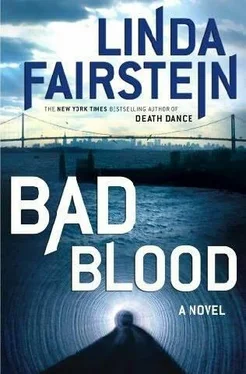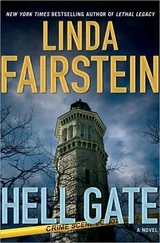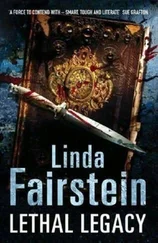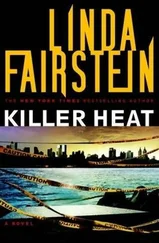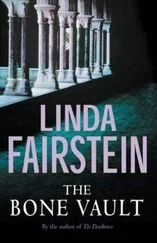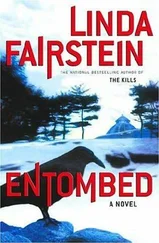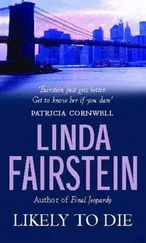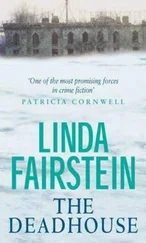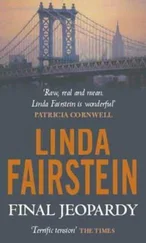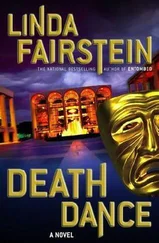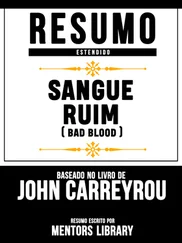I turned on my heels to go back to my office to wait for Jerry Genco.
“Slow down,” Mike said, pulling me into the alcove next to the conference room. “Do me a favor-don’t buy any lottery tickets today.”
“Now what? Genco’s stuck in traffic?”
“Someone got to Marley.”
“How? What do you mean? He’s on Rikers Island.” Mike had come up with a witness, a thirty-two-year-old burglar from the island of Jamaica who was awaiting trial on a string of break-ins when Amanda Quillian was murdered.
“Got out of jail free. Went directly to the operating room at Bellevue Hospital.”
“What for?” It had taken me weeks to negotiate a cooperation agreement with Marley’s lawyer, whose client would testify that six months before Amanda’s murder, Brendan Quillian had offered him twenty thousand dollars to kill his wife.
“Snitch fever.”
The only prisoners lower on the totem pole than pedophiles were rats. “He’s sick?”
“You would be, too, if someone stuck a shiv between your fifth and sixth thoracic vertebrae while you were working out in the yard.”
“You think it’s related to the case? Will he live?”
“It’s all about the case. Count on it. Critical but stable.”
I shook my head and continued on my way. “Yeah, maybe it’s just a jailhouse-”
“I mean they cut off a clump of Marley’s dreads and shoved them in his throat to try to choke him to death. The message was pretty clear that somebody doesn’t want him to talk.”
The cops in the patrol car who got the message from the 911 dispatcher to respond to the Quillian home were there within six minutes of the call. Although they were the closest unit to the location, they had been double-parked in front of a deli to buy sandwiches and lost more time while stuck behind school buses stacked to pick up students from trips to the Metropolitan Museum of Art. Police officer Timothy Denton referred to his memo book, with the court’s permission, as he recited the times he had recorded in it.
“When you turned into the block between Fifth and Madison Avenues, did you observe any unusual activity?”
“No, ma’am.”
“Did you see any pedestrians?”
“Yes, ma’am. Mostly kids. A few adults, all women.”
“Did you see anyone running from the location?”
“No, I did not.”
The rookie cop wasn’t much less nervous than Kate Meade.
“Were you able to enter the Quillian residence?”
“Not right away. The door was locked. My partner rang the bell while I tried the service door to see if it was open,” Denton said. I was accounting for more critical minutes that had elapsed while Amanda Quillian lay inside on the living room floor. “Then I climbed up on the railing of the stoop to check if I could force open a window, but they had bars over the glass, so there wasn’t any use.”
“What did you do next?”
“I’d already radioed once for a backup unit. I called again and asked for ESU.”
“Would you please tell the jury what those initials stand for?”
“Sorry. Yeah. It’s the Emergency Services Unit. They do all the rescues and stuff. People stuck in elevators or jumpers on bridges. Called for them ’cause they have the battering rams to open doors.”
“Who was the next person to arrive at the Quillian house?”
Denton looked at his memo pad and repeated the name he had written there. “It was maybe ten minutes later. This young woman came-with a set of keys. Said she worked for Mrs. Meade, the lady who called 911. She was the babysitter.”
“Did you enter the town house?”
“Yeah, me and my partner. He opened the front door with the keys. We made the girl wait outside and we went in.”
“Can you tell us what you found?”
Denton ran the back of his hand over the top of his buzz cut and down his neck. He swallowed hard. “My partner-Bobby Jamison-he was ahead of me. We went in the entryway. Something must have caught his eye-”
“Objection.”
Judge Gertz admonished the young cop, “Just tell us what you observed and what you did.”
“Yes, sir.” Denton turned back to the jurors. “He stepped off to the left, into-well, like a parlor, I guess. I walked straight ahead. Then, I-um-I heard this kind of noise. Sort of a gagging noise. I doubled back.”
“What did you see?”
“That’s when I saw the body-the lady on the floor.”
“She was making a gagging noise?” Gertz asked, incredulous, because he thought he was familiar with the facts of the case.
“The sound you heard,” I interrupted to ask Denton, trying to keep control of the witness in the face of jurors who had already seen me sabotaged by a character in my own case. “What was the source of that?”
“Was she?” Gertz said again.
Denton’s head moved back and forth between me and the judge. “No, sir. The corpse was already dead.” Yogi Berra couldn’t have said it any better. Denton sheepishly looked to the jurors for some sign of understanding, then answered me. “That was my partner, Officer Jamison, making the noise. Throwing up. It was his first DOA.”
Despite my many hours of prepping Denton for his court appearance, he had always seemed more focused on Jamison’s reaction than Amanda Quillian’s condition.
I walked him through the events that followed, trying to leave as little room as possible for Lem Howell to paint the pair of rookies as Keystone Kops. Bobby Jamison’s physical response to encountering the murder victim had obviously contaminated an area of the crime scene. No, neither man had worn rubber gloves or booties in the house; yes, Denton had moved the body a bit to keep clear of the problem his partner had created; and, no, they hadn’t called to report the homicide until after they had cleaned up Jamison’s mess.
“Were there any signs of forced entry?”
“No, ma’am.”
Howell would argue that the killer was a street person who had pushed in after his victim unlocked the door. It was Chapman’s view-with Brendan Quillian conveniently out of town and the housekeeper on her regular day off-that the defendant had given the killer access to the home, so that he could lie in wait for Amanda as she entered alone after her luncheon date.
Howell’s cross-examination was a well-organized punch list of activities that the most casual of television viewers had come to expect of crime-scene responders. Tim Denton had been oblivious to just about every rule as he tended his unsteady partner on that fall afternoon, and the volley of No’s he gave in response to the questions seemed endless.
“I have no redirect of Officer Denton,” I said when Howell ceded the witness back to me and nodded at me with a smile.
The entryway of the town house and the area surrounding Amanda Quillian’s lifeless body had been hopelessly compromised by the first two cops on the scene. If the killer had left any trace evidence near her, he couldn’t have asked for more than the timely arrival of Jamison and Denton.
“You want a recess before you call your next witness?”
“May I have ten minutes?” I didn’t need the time, but I counted on it to let the jurors stretch their legs and come back fresh to a more compelling witness.
“Sure,” Gertz said. “Why don’t we give the jurors a short break.”
Max signaled me from her third-row seat that Jerry Genco had arrived and was waiting in the witness room. Artie Tramm let me slip out of the courtroom to the small cubicle off the locked hallway, and I confirmed with the pathologist the points that would be covered in his testimony.
“Dr. Genco,” I asked as the trial resumed, after he had completed the details of his medical education and training as a forensic pathologist and been qualified in his area of expertise, “for how long have you been employed at the Office of the Chief Medical Examiner of the City of New York?”
Читать дальше
